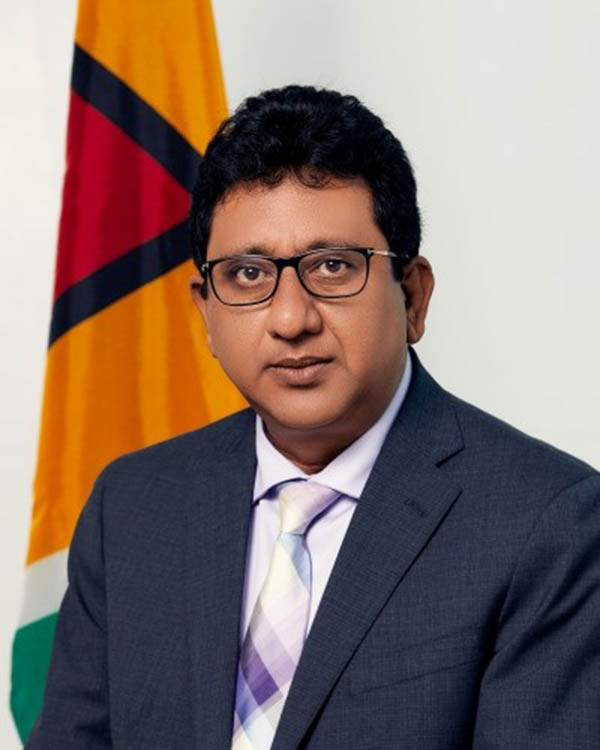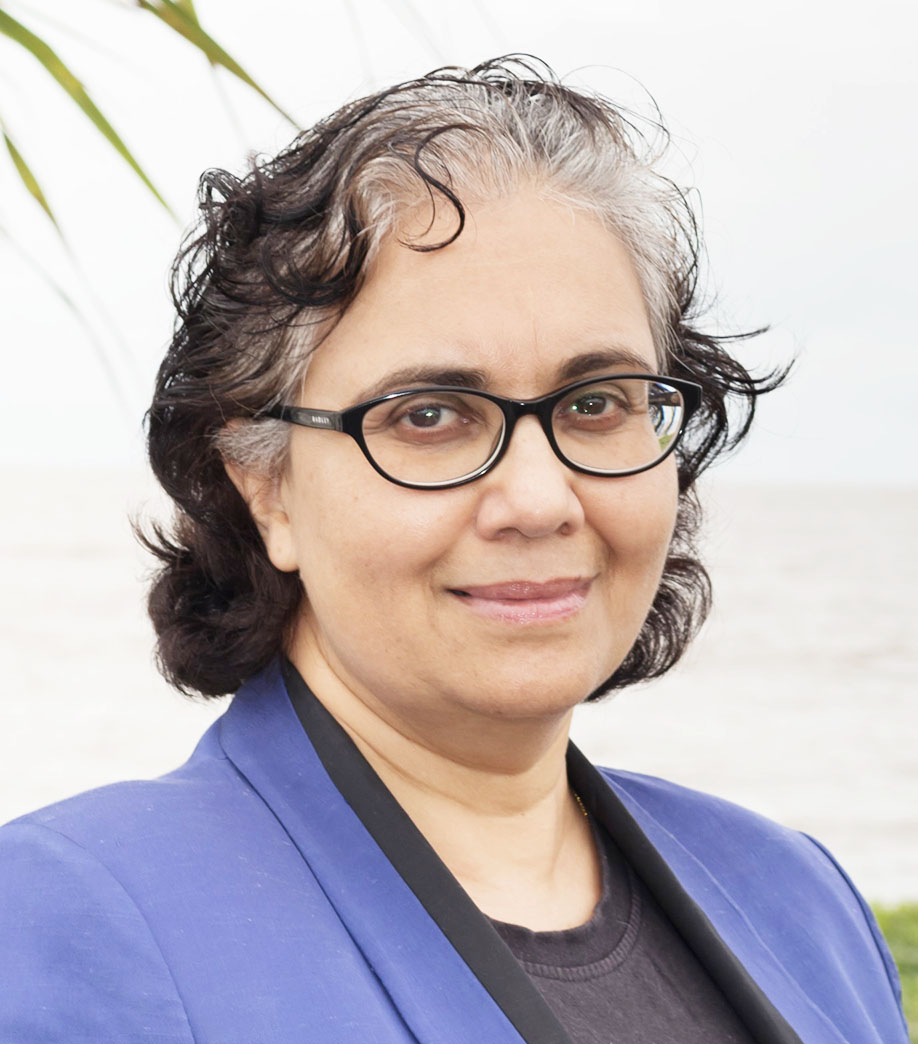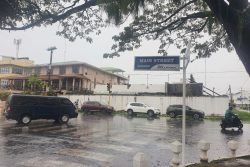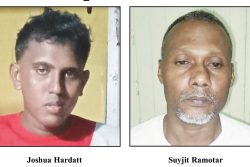-says rule of law threatened
The Attorney General’s statement that it is the ‘government, and not the court which must decide what protection Guyana is to have from an oil spill,’ is a threat to the rule of law which “is undermined when there is, or appears to be, interference with the judiciary.”
This is the assertion of attorney-at-law Melinda Janki, who says that despite public reports that President Irfaan Ali has assured an ExxonMobil partner that a court would grant a particular request in its favour, the Attorney General as principal legal adviser to the President, “has said nothing and has apparently taken no action to clear the President’s name or uphold the rule of law.”
Janki in a recent release to the press was responding to statements made by Attorney General Anil Nandlall SC in an April 9th, 2024 article published in the Kaieteur News, in which he noted that the decision surrounding protection of Guyana from an oil spill resides with the government.

Nandlall was adamant that this was not a decision for the court, while going on to state that it is the government that is in charge of the management of the State.
The statements made by Nandlall and Janki have their origin in an appeal currently pending to a landmark ruling made by the High Court last year, that ExxonMobil (Guyana) was liable for an unlimited parent company insurance guarantee to fully indemnify Guyana against an oil spill and associated perils.
High Court Judge Sandil Kissoon on May 3rd of last year ruled that ExxonMobil was in breach of its insurance obligation.
While the appeal to this ruling continues to pend before the Court of Appeal, Justice of Appeal Rishi Persaud on June 8th had granted a stay of the order made by Justice Kissoon; on condition that Esso, Exxon’s local affiliate, lodge a US$2 billion guarantee.
The applicants by whom the initial action was filed before the High Court, however, applied a month later, to have that order varied or discharged. The local appellate court is yet to hear that application.
On February 19th of this year, Justice Persaud ruled that he did not have jurisdiction to order Esso and/or the Environmental Protection Agency (EPA) to provide the court with proof that the US$2 billion guarantee had indeed been lodged.
The applicants have since applied to the full bench of the Court of Appeal for Justice Persaud’s order to be varied or discharged.
Esso and the EPA lodged their appeals in May of last year following Justice Kissoon’s ruling. The applicants had applied for an urgent hearing of those appeals, but to date the Court of Appeal is yet set a date for hearing of those appeals.
Doctrine
To Nandlall’s statements made in the Kaieteur News article, Janki sought to remind that under the doctrine of separation of powers, it is the judiciary which interprets the law, while adding that the rule of law requires the government to respect the separation and not seek to usurp the functions of the judiciary.
Against this background she said that the rule of law requires the government to respect and obey court judgements; underscoring that it is the judiciary which decides what are the legal rights and duties of government, private sector entities and individuals.
“The Judiciary have a constitutional duty to protect the people of Guyana from abuse of power by the government,” Janki said in her press release.
Janki said that the powers of government—the executive—which comprises the President and ministers—are limited by the Constitution—by statute and by the common law, noting that the government has a duty to uphold the rule of law.
“The government is not the State,” she said, before going on to add, “contrary to the assertions of the Attorney General the government is not even “in charge of the management of the State.” The members of government are servants not managers. They are accountable to the people for their actions.”
She said the government has a legal duty to act in the best interest of Guyana as a sovereign State and the people of Guyana who make up the State, “the resources of the State belong to the people not to the government.”
On this point, she sought to add that the government is legally required to put the interests of the people above the interests of foreign corporations such as ExxonMobil.
Referencing Justice Kissoon’s ruling, Janki noted that the environmental permit which was signed by Esso and its terms agreed to, is a legal document; and that it is therefore “for the Judiciary, [and] not the government, to determine the legal meaning of that environmental permit.”
“In plain English the judge said that if there is an oil spill from Esso’s operations then Esso is liable for all the costs to clean up the oil and to restore the environment as well as all the costs of compensating those who are affected. There is no limit on Esso’s liability and there is no limit on the parent company guarantee. If Esso does not have the money to meet its liabilities, then the people of Guyana will have to pay,” she noted.
In deference to orders made by Justice Kissoon, Janki said that the Court as the arbiter in these matters said that Esso had to produce environmental liability insurance that is customary in international petroleum operations.
What this means she said, is that Esso has to provide the same insurance in Guyana, as oil companies produce wherever they operate.
Janki opined, “The Attorney General is an extremely capable and well-regarded Attorney-at-Law and it does him no credit to talk about ‘unlimited insurance’ when the entire population knows that there is no such thing.”
She said that what Justice Kissoon’s order clearly requires Esso to do, is comply with conditions of its environmental permit and provide a parent company guarantee to indemnify Guyana and the EPA. “In other words, if Esso does not have the money, then ExxonMobil Corporation has to step in and pay for the damage caused by Esso’s petroleum operations,” she said.
Underscoring that the substantive appeal is still pending before the court, Janki declared, “justice delayed is justice denied.”
She said that while Justice Kissoon is to be “commended” for the speed with which he dispensed the matter, the same cannot be said for the still pending appeal before the local appellate court.
“The rule of law is threatened when judges do not deliver their decisions swiftly. This is especially serious in cases of judicial review where public interest litigants seek to protect the nation from unlawful actions by government and regulatory bodies such as the Agency. Every day’s delay is a day in which the judiciary is allowing potentially unlawful conduct to continue to the detriment of the State and its people,” she said.
She continued, “It is contrary to the rule of law and the public interest that eleven months have elapsed without the Court of Appeal determining the appeals and also that the Court has not heard the applications on the stay. More generally, it undermines the rule of law when in judicial review cases certain judges have been unable to render their decisions within the time limits set by law.”
Janki declared that “as the two most senior judges in country, the Chancellor and the Chief Justice ought to ensure that the judicial system delivers justice in a timely, independent and impartial manner that merits public trust. It is their responsibility to demand and obtain the resources necessary to do so or to step down.”
According to the lawyer, “the rule of law is undermined when there is, or appears to be, interference with the judiciary;” while adding that “despite public reports that the President assured John Hess that [Justice] Persaud would grant the stay, the Attorney-General, who is constitutionally the principal legal adviser to the President, has said nothing and has apparently taken no action to clear the President’s name or uphold the rule of law.”
She said that the rule of law requires governments to treat all citizens equally. The rule of law is a guarantee of freedom from oppressive and arbitrary government but it has to be used and protected by citizens.
Janki said that Nandlall’s comments that “every Tom, Dick and Harrylall (can) file cases, (although) they have no direct interest in the oil and gas sector…,” is disrespectful to public- spirited citizens who are doing their public duty by keeping the government in check.
“The rule of law is under threat in Guyana and more citizens had better stand up to protect their freedom,” she asserted.






